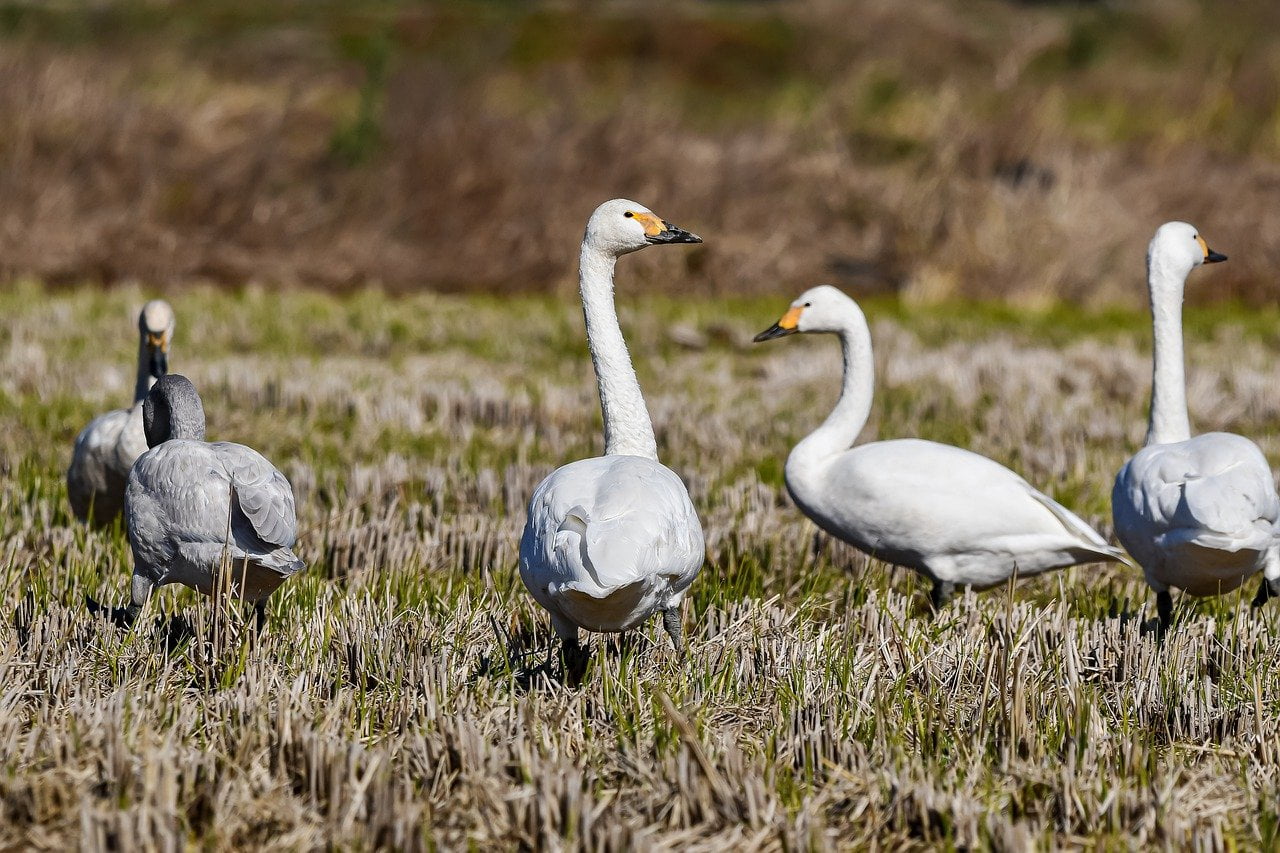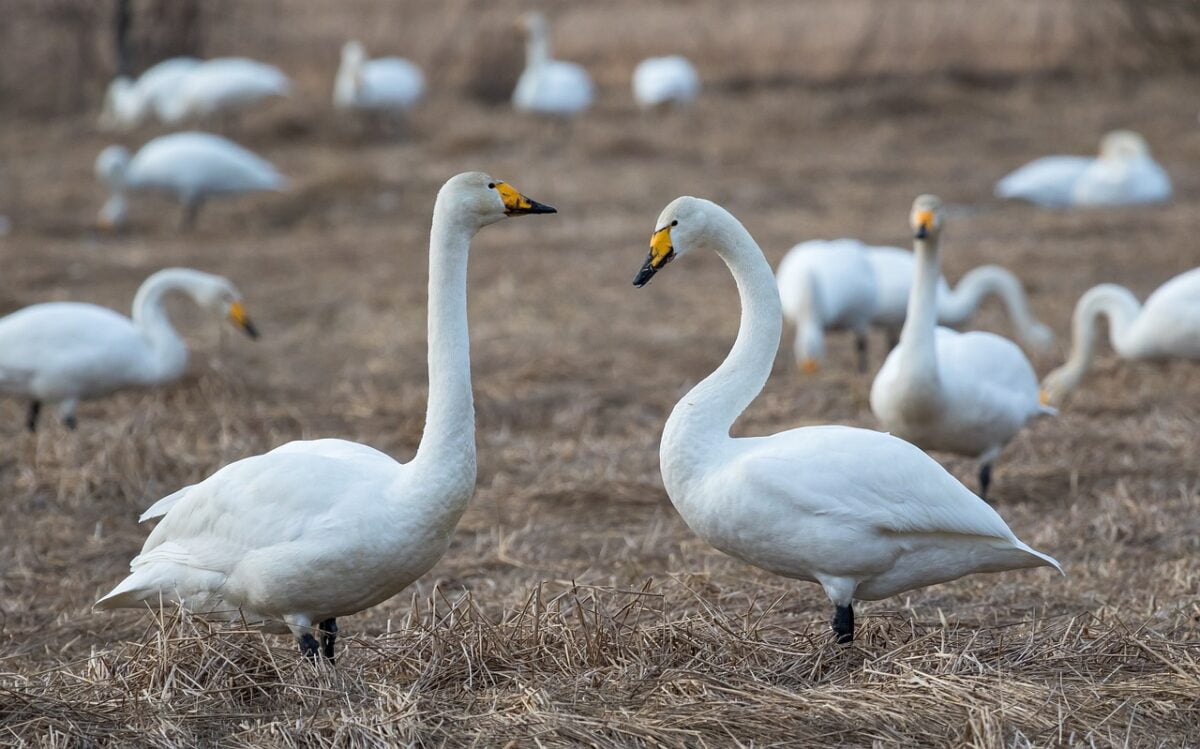
Every autumn we see the arrival of many thousands of ducks, geese, swans and waders; north-west England is an attractive proposition with its extensive coastline, rich seas, and intertidal and grassland feeding grounds.
The Ribble Estuary, Morecombe Bay and the Dee Estuary are all within the top-four UK sites by population for non-breeding waterbirds.
The mighty whooper swan, only rivalled in size by its more sedentary cousin the mute swan, is a magnificent bird. The UK provides a winter home for internationally significant numbers of these birds and those numbers are happily increasing. This is in no small part down to the efforts of reserves throughout the region and the good practice of environmental consultancies like TEP.
Whooper swans need space. They need clear sightlines across large fields in order to feel secure when feeding on agricultural land. The vicinity of roads, footpaths, aerial obstacles and the presence of livestock are also important considerations when ascertaining the suitability of sites for this species.
A handsome bird of remote moorland in the summer months,-autumn sees golden plover migrate to lower altitudes and gather in dense flocks. It is therefore on farmland and some coastal areas that peoplecome across numbers of this species, still resplendent in their winter plumage. They often appear nervous on the ground, standing upright and alert. Golden plover fly high in oval flocks and readily associate with the more familiar lapwing.

Disturbance caused to birds can negatively affect their overwintering and breeding success as they use precious energy to take flight more often. This can be minimised by better understanding their interactions with a site. The early autumn is the right time to commence winter bird surveys to inform projects. Such surveys are often an essential requirement for projects covering large areas of open agricultural land. Species like the whooper swan and especially golden plover can make daily feeding flights of up to 20km from their protected coastal sites, of which there are many on the Northwest coastline. Therefore, it is essential not to overlook winter bird surveys at this time of year.
TEP has a dedicated team of ornithologists that can review your project requirements and provide advice on the potential requirement for the design and undertaking of winter bird surveys. Please contact Principal Ecologist Tim Ross (timross@tep.uk.com) for more information.
-Tobie Wharton, Consultant Ecologist








